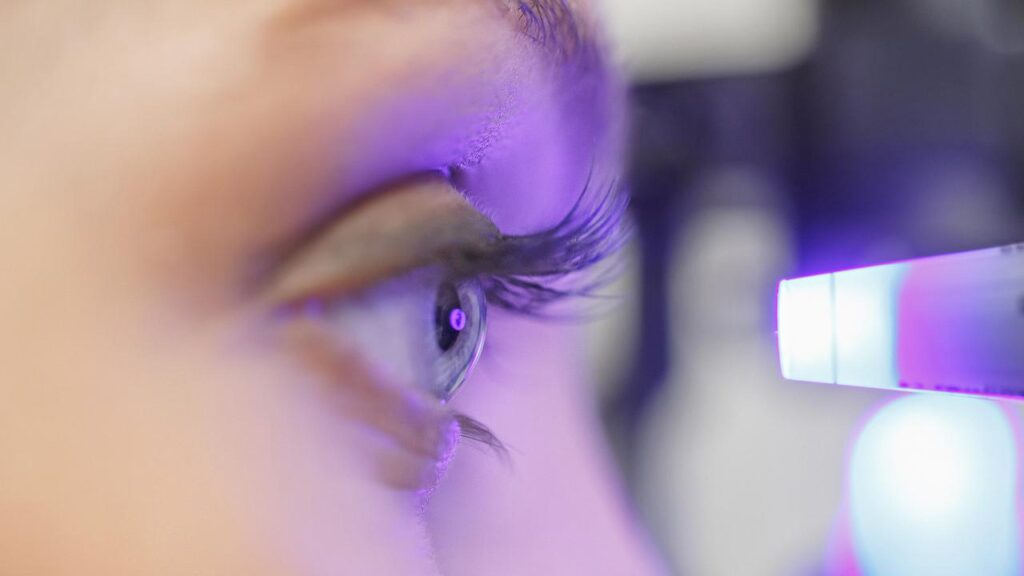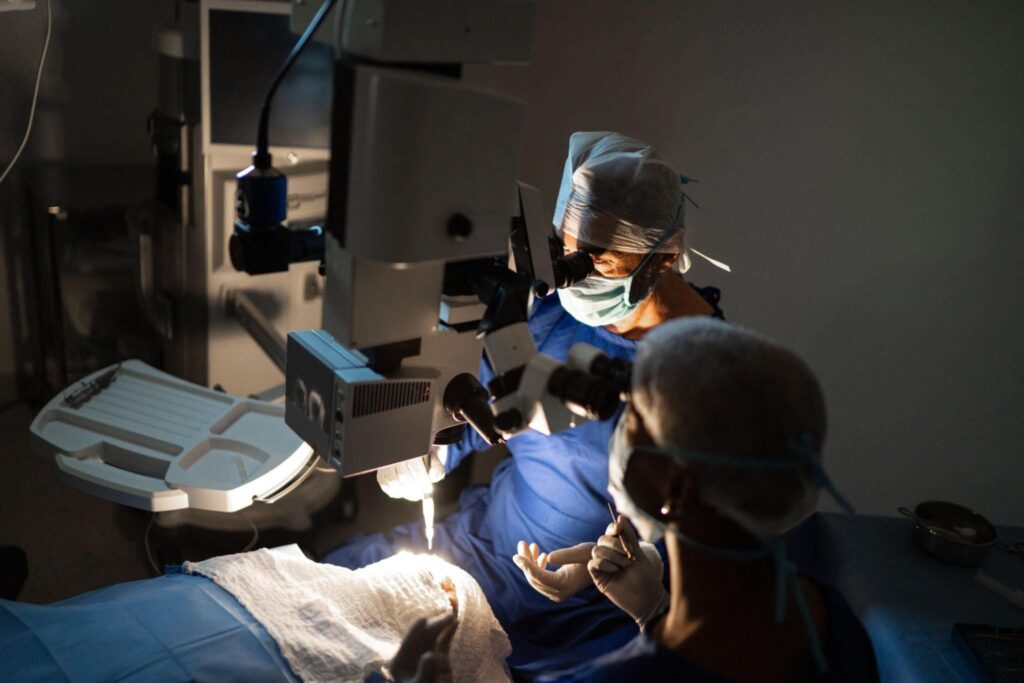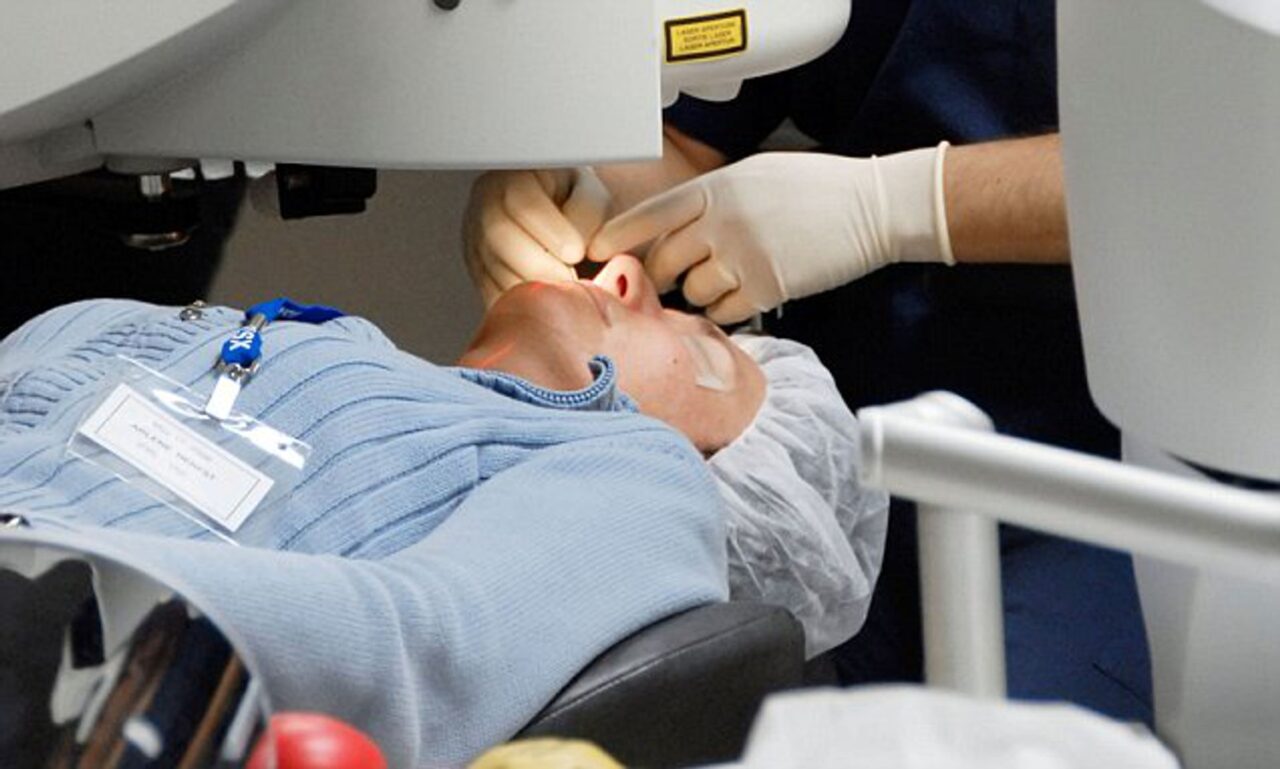In today’s world, where technology continues to advance at an unfathomable pace, there are now advanced options available for individuals seeking to enhance their vision. One such option is custom LASIK surgery, a revolutionary procedure that can provide remarkable results. Understanding how this procedure works, its benefits, and what to expect during the process will help you make an informed decision about whether custom LASIK surgery is right for you.
Understanding Custom LASIK Surgery
Custom LASIK surgery is an advanced form of LASIK that utilizes cutting-edge technology to tailor the procedure to the individual’s eyes. It is a step up from traditional LASIK surgery, as it takes into account the unique characteristics of each person’s eyes, creating a customized treatment plan.
Patients considering custom LASIK surgery can expect a comprehensive pre-operative evaluation to assess their eye health and determine their candidacy for the procedure. This evaluation may include tests such as corneal topography, pupil size measurement, and a detailed examination of the cornea and retina. By gathering detailed information about the patient’s eyes, surgeons can design a personalized treatment plan that addresses their specific vision needs.
What is Custom LASIK Surgery?
Custom LASIK surgery is a refractive surgery procedure aimed at correcting common vision problems such as nearsightedness, farsightedness, and astigmatism. It involves the use of a laser to reshape the cornea, improving the eye’s ability to focus light on the retina.
The Science Behind Custom LASIK
Custom LASIK surgery relies on advanced technology called wavefront technology. It measures the way light travels through the eye, mapping out imperfections and creating a detailed 3D image of the eye’s unique visual system. This information is then used to guide the laser during the surgery, correcting the specific imperfections identified by the wavefront analysis.
Wavefront technology not only allows for a more precise correction of refractive errors but also enables the treatment of higher-order aberrations that were previously difficult to address with traditional LASIK. By customizing the laser treatment based on the individual’s unique eye characteristics, custom LASIK surgery aims to provide patients with enhanced visual outcomes and reduced risk of side effects.
Benefits of Custom LASIK Surgery
Custom LASIK surgery provides several benefits over traditional LASIK, making it an attractive option for those looking to enhance their vision.
When considering custom LASIK surgery, one of the key advantages to keep in mind is the personalized approach it offers. Unlike traditional LASIK, custom LASIK takes into account the unique characteristics of each individual’s eyes. This customization allows for a more precise correction of vision issues, potentially leading to better outcomes for patients.
Improved Visual Acuity
One of the main benefits of custom LASIK surgery is the potential for improved visual acuity. By tailoring the procedure to the individual’s eyes, custom LASIK can address unique visual imperfections that may not be corrected by traditional LASIK. This can result in sharper, clearer vision.
Furthermore, custom LASIK has the ability to correct higher order aberrations, which are subtle imperfections in the eye that can impact vision quality. By addressing these specific issues, custom LASIK can potentially provide patients with not only clearer vision but also enhanced contrast sensitivity and reduced glare, particularly in low-light conditions.
Quick Recovery Time
Custom LASIK surgery typically has a quicker recovery time compared to traditional LASIK. Many individuals experience improved vision within a day or two after the procedure, allowing them to quickly resume their daily activities.
In addition to the faster recovery time, custom LASIK may also result in fewer side effects such as halos, glare, and difficulty with night vision. This can lead to a more comfortable post-operative experience for patients, with many reporting minimal discomfort and a rapid return to normal daily routines.

The Custom LASIK Procedure
Before undergoing custom LASIK surgery, it is important to understand the steps involved in the procedure.
Custom LASIK, also known as wavefront-guided LASIK, is a type of laser eye surgery that offers a personalized treatment for your eyes. This advanced procedure uses detailed measurements of your eye’s unique imperfections to guide the laser in reshaping your cornea, leading to improved vision correction outcomes.
Pre-Surgery Consultation
Prior to the surgery, you will have a consultation with your eye surgeon. During this appointment, your eyes will be thoroughly examined to determine if you are an ideal candidate for custom LASIK. Your surgeon will discuss the potential benefits and risks, answer any questions you may have, and provide detailed instructions for preparing for the surgery.
Additionally, the pre-surgery consultation is an opportunity for you to discuss your visual goals with the surgeon. Whether you are looking to reduce your dependence on glasses or contact lenses or simply seeking clearer vision, communicating your expectations can help tailor the custom LASIK procedure to meet your specific needs.
The Surgery Process
On the day of the surgery, you will be given numbing eye drops to ensure your comfort. Your surgeon will use a laser to create a thin flap on the surface of your cornea. This flap is then lifted, and the laser is used to reshape the underlying corneal tissue according to the custom treatment plan. Once the reshaping is complete, the flap is carefully repositioned, acting as a natural bandage as it heals.
During the surgery, eye-tracking technology is employed to monitor and adjust for any eye movements, ensuring precise and accurate treatment delivery. The entire procedure typically takes only a few minutes per eye, and many patients experience improved vision almost immediately after the surgery.
Post-Surgery Care and Expectations
After undergoing custom LASIK surgery, it is important to follow post-surgery care instructions to ensure optimal healing and vision outcomes.
Understanding the intricacies of post-surgery care can significantly impact the success of your LASIK procedure. In addition to following your surgeon’s instructions diligently, it is essential to create a conducive environment for your eyes to heal. This includes ensuring proper rest, avoiding exposure to irritants like smoke or dust, and wearing protective eyewear if recommended.
Immediate Aftercare
Following the surgery, you may experience mild discomfort and blurry vision. Your surgeon will provide specific instructions on how to care for your eyes during the initial post-operative period, including using prescribed eye drops and avoiding activities that could potentially irritate your eyes.
It is common to feel a sensation of grittiness in your eyes or experience sensitivity to light post-surgery. These symptoms are normal and should subside as your eyes heal. Adequate hydration and avoiding rubbing your eyes are simple yet effective ways to promote healing and reduce discomfort.
Long-Term Vision Maintenance
While custom LASIK surgery can greatly enhance your vision, it is important to remember that your eyes will continue to age naturally. Regular eye exams and maintaining a healthy lifestyle are crucial for ensuring long-term vision maintenance. Your eye surgeon will provide guidance on how to best care for your eyes to maximize the longevity of your results.
Embracing a holistic approach to eye health can prolong the benefits of your LASIK surgery. Incorporating foods rich in vitamins and antioxidants, such as leafy greens, carrots, and fish, can support overall eye health. Additionally, practicing good eye hygiene, such as removing eye makeup before bed and taking screen breaks to reduce digital eye strain, can contribute to sustained visual acuity over time.

Potential Risks and Complications
As with any surgical procedure, custom LASIK surgery carries some risks and potential complications. It is essential for individuals considering this vision correction option to be well-informed about the possible outcomes.
One important aspect to consider is the risk of overcorrection or undercorrection, which can affect the final visual outcome of the surgery. Overcorrection happens when too much corneal tissue is removed during the procedure, leading to vision that is stronger than desired. On the other hand, undercorrection occurs when the laser removes too little tissue, resulting in residual refractive errors that may require additional enhancement procedures.
Common Side Effects
Mild side effects such as dry eyes, glare, and halos around lights are common after custom LASIK surgery. These usually subside within a few weeks as your eyes heal. It is important to follow your surgeon’s post-operative care instructions diligently to help alleviate these temporary side effects and promote optimal healing.
Another common side effect that patients may experience is temporary discomfort or sensitivity to light. This sensitivity typically resolves as the eyes adjust to their new visual acuity. Additionally, some individuals may notice fluctuations in their vision during the healing process, but these fluctuations often stabilize over time.
Serious Complications and How to Avoid Them
Serious complications after custom LASIK surgery are rare, but it is important to be aware of them. Issues such as infection, corneal flap complications, and persistent dry eye syndrome can occur, although they are uncommon when the procedure is performed by a skilled and experienced surgeon. Following your surgeon’s instructions, attending follow-up appointments, and promptly reporting any concerns to your surgeon are crucial steps to minimize the risk of complications. Your surgeon will provide detailed information on how to ensure a smooth recovery.
It is vital for individuals considering custom LASIK surgery to undergo a comprehensive pre-operative evaluation to assess their candidacy for the procedure accurately. Factors such as corneal thickness, refractive stability, and overall eye health play a crucial role in determining the success and safety of the surgery. By addressing any potential risk factors before the procedure, the surgeon can tailor the treatment plan to each patient’s unique needs, maximizing the likelihood of a successful outcome.In conclusion, custom LASIK surgery offers a personalized approach to vision correction and has the potential to significantly enhance your vision. Understanding the procedure, its benefits, and what to expect before and after surgery will help you make an informed decision about whether custom LASIK surgery is the right option for you. Always consult with a qualified eye surgeon to discuss your individual needs and determine the best course of action to achieve your vision enhancement goals.
Related: Choosing the Best LASIK Surgeon

